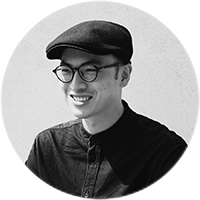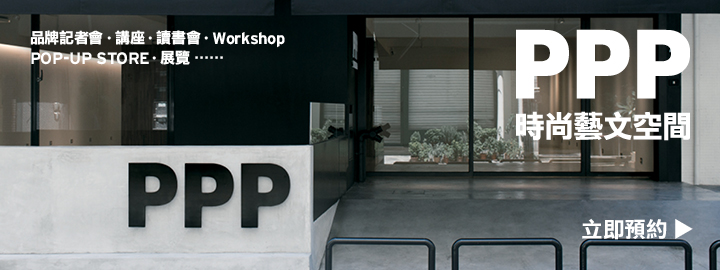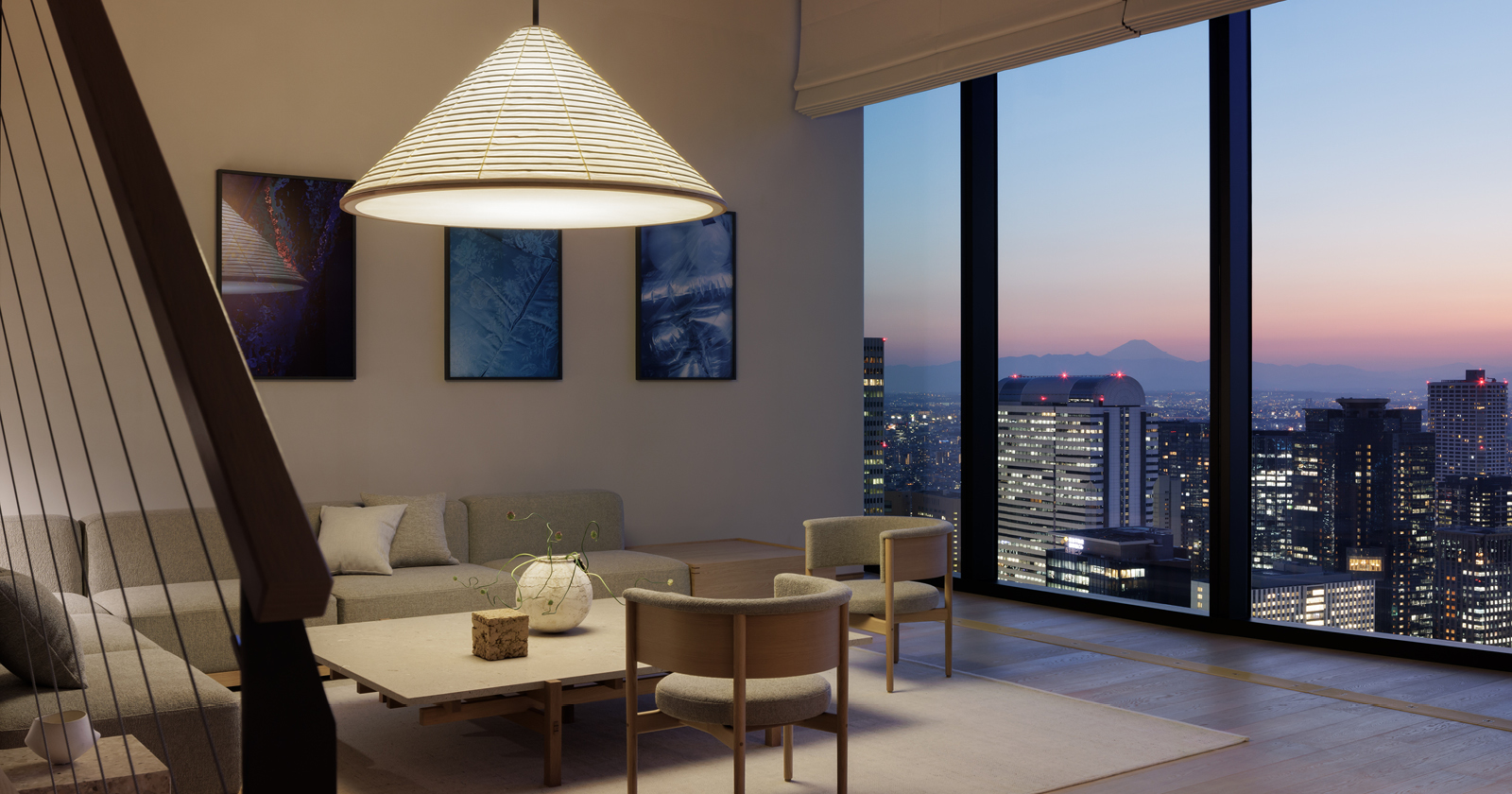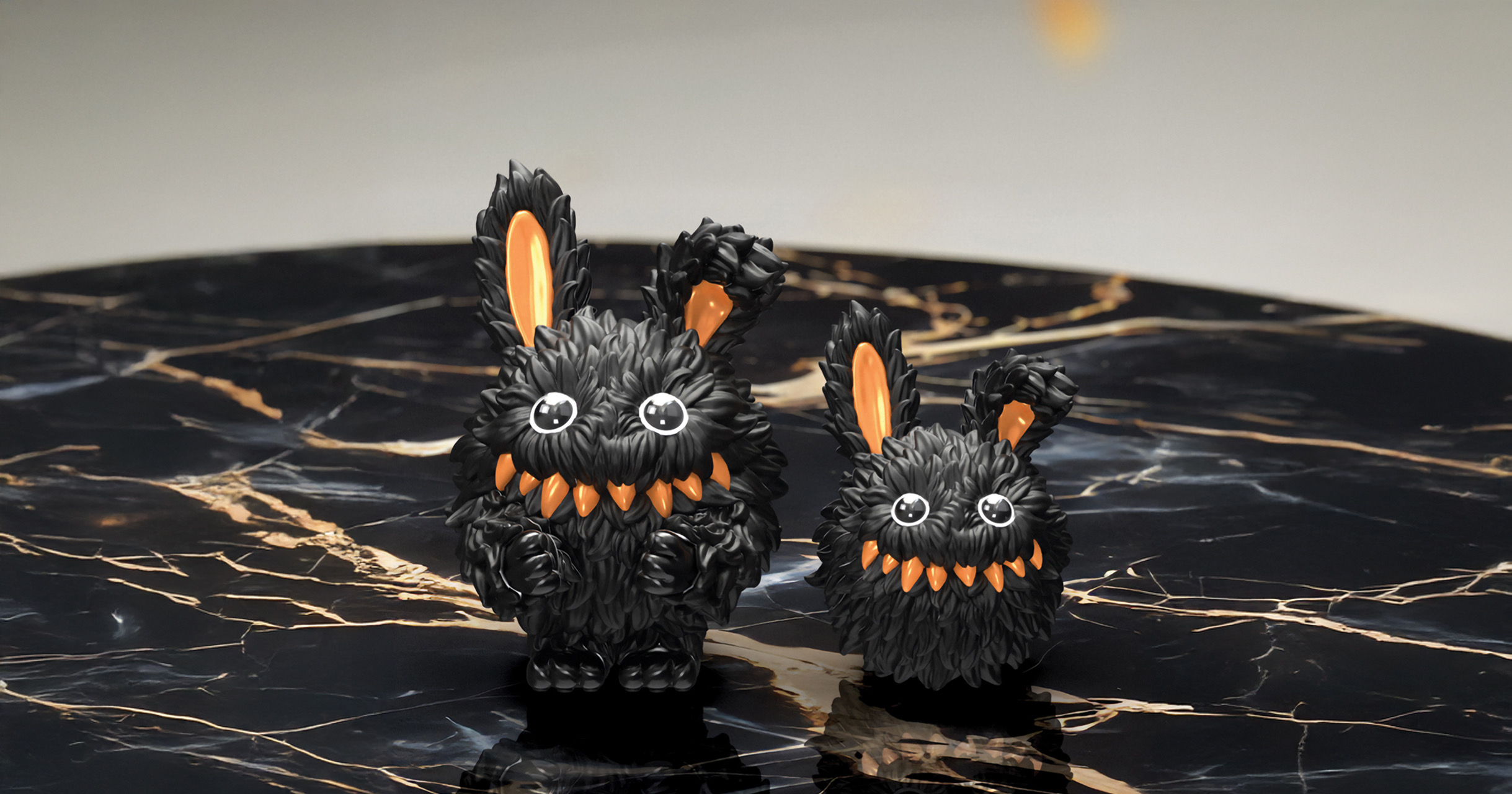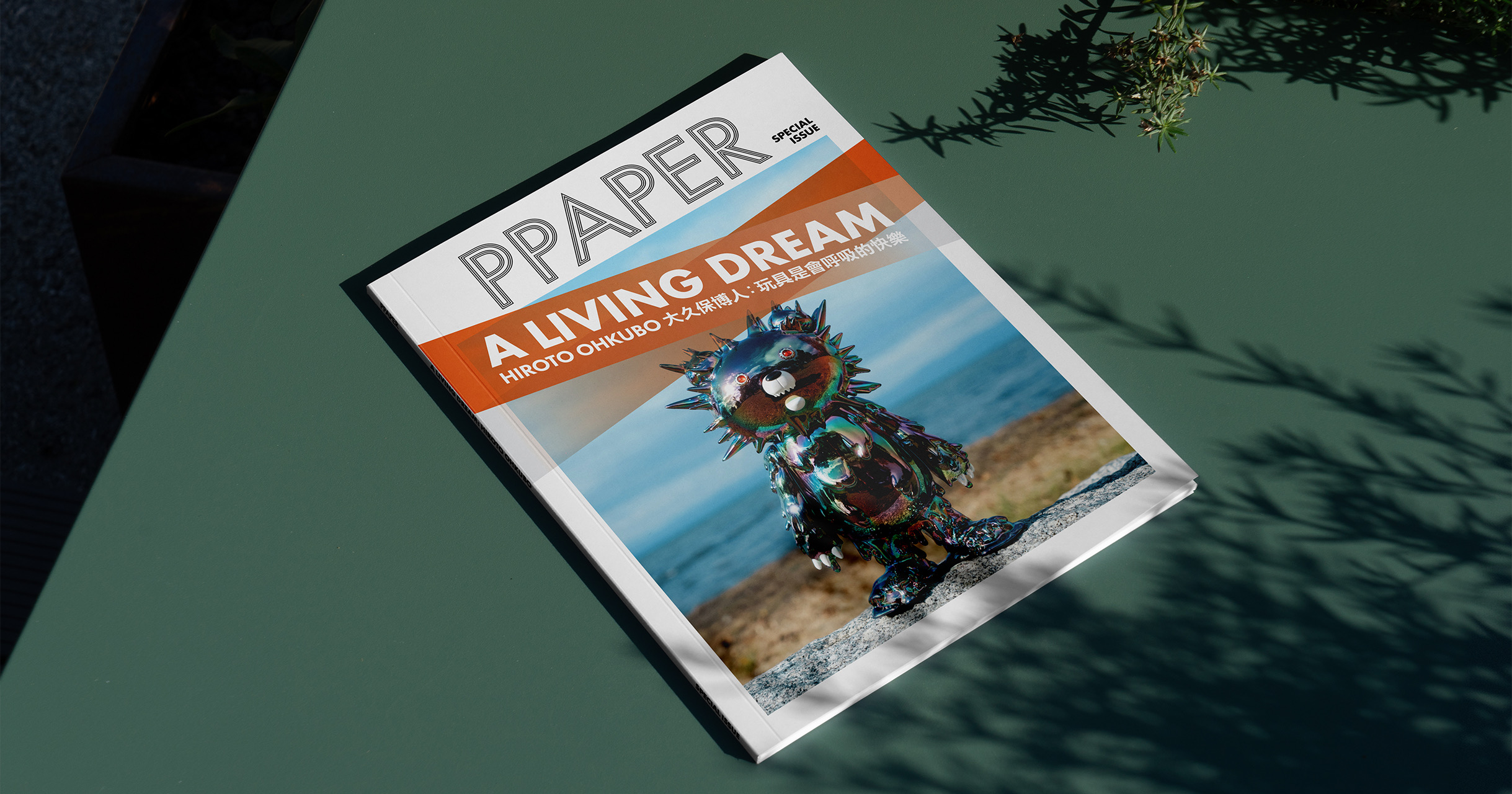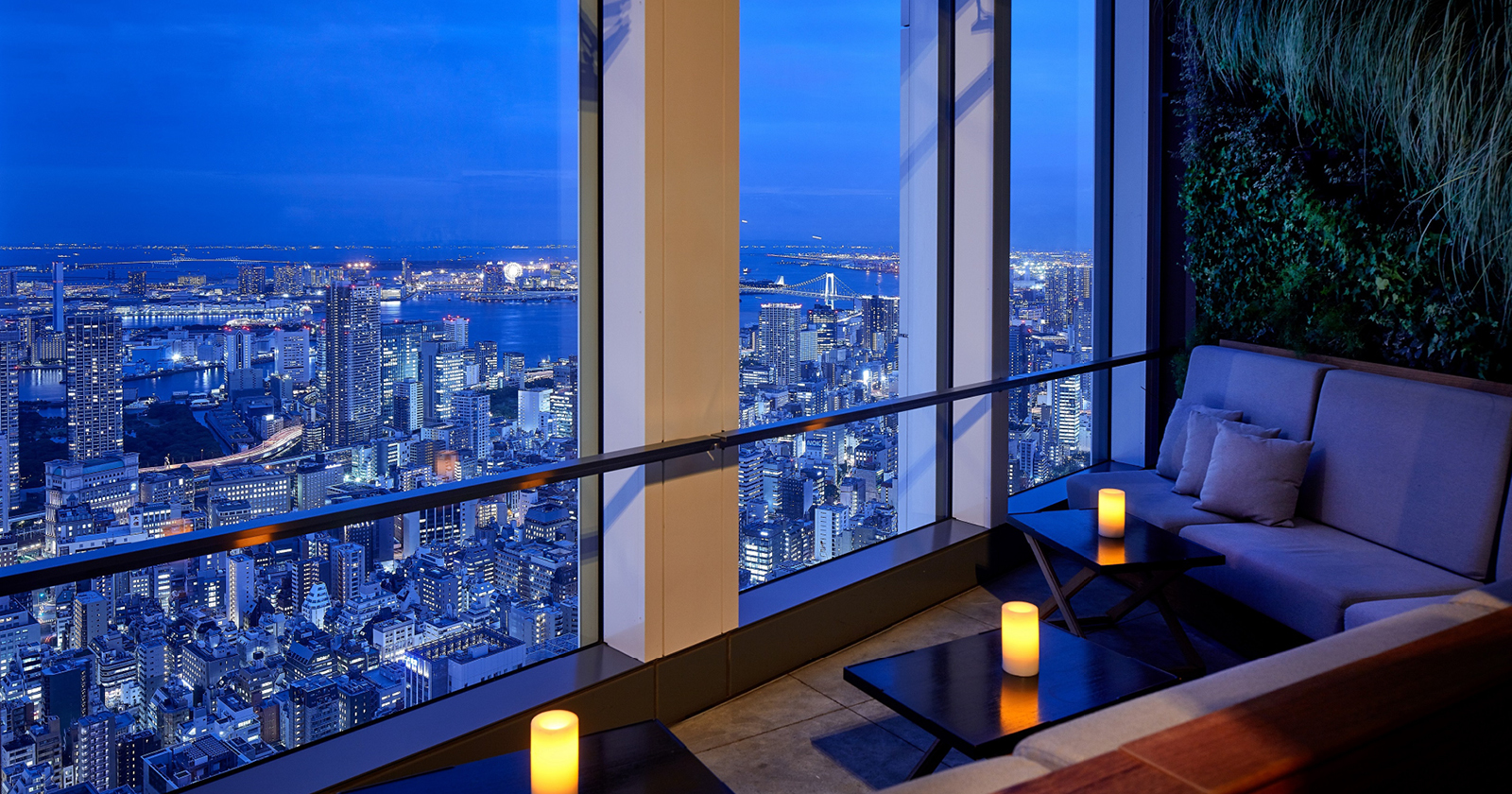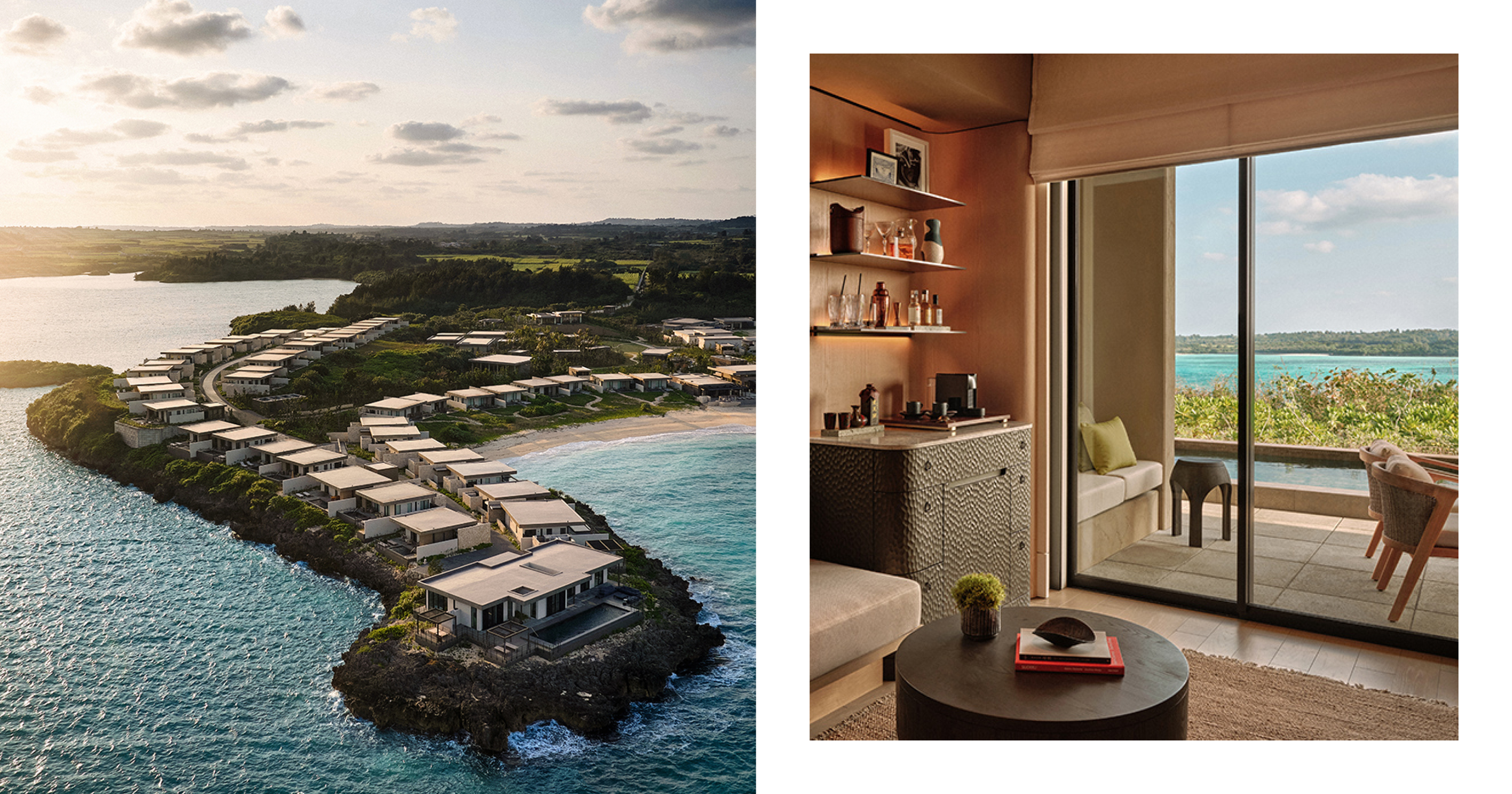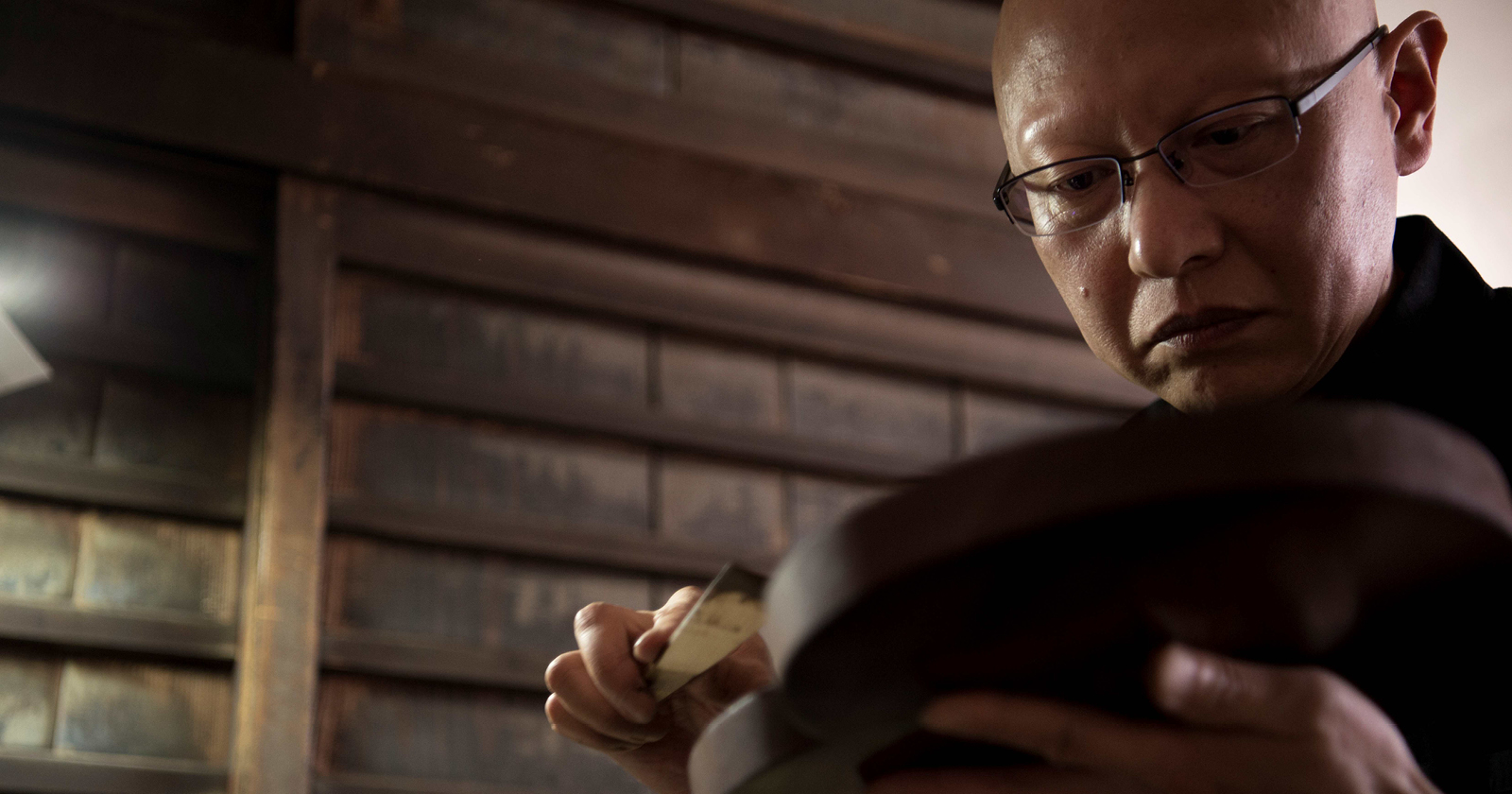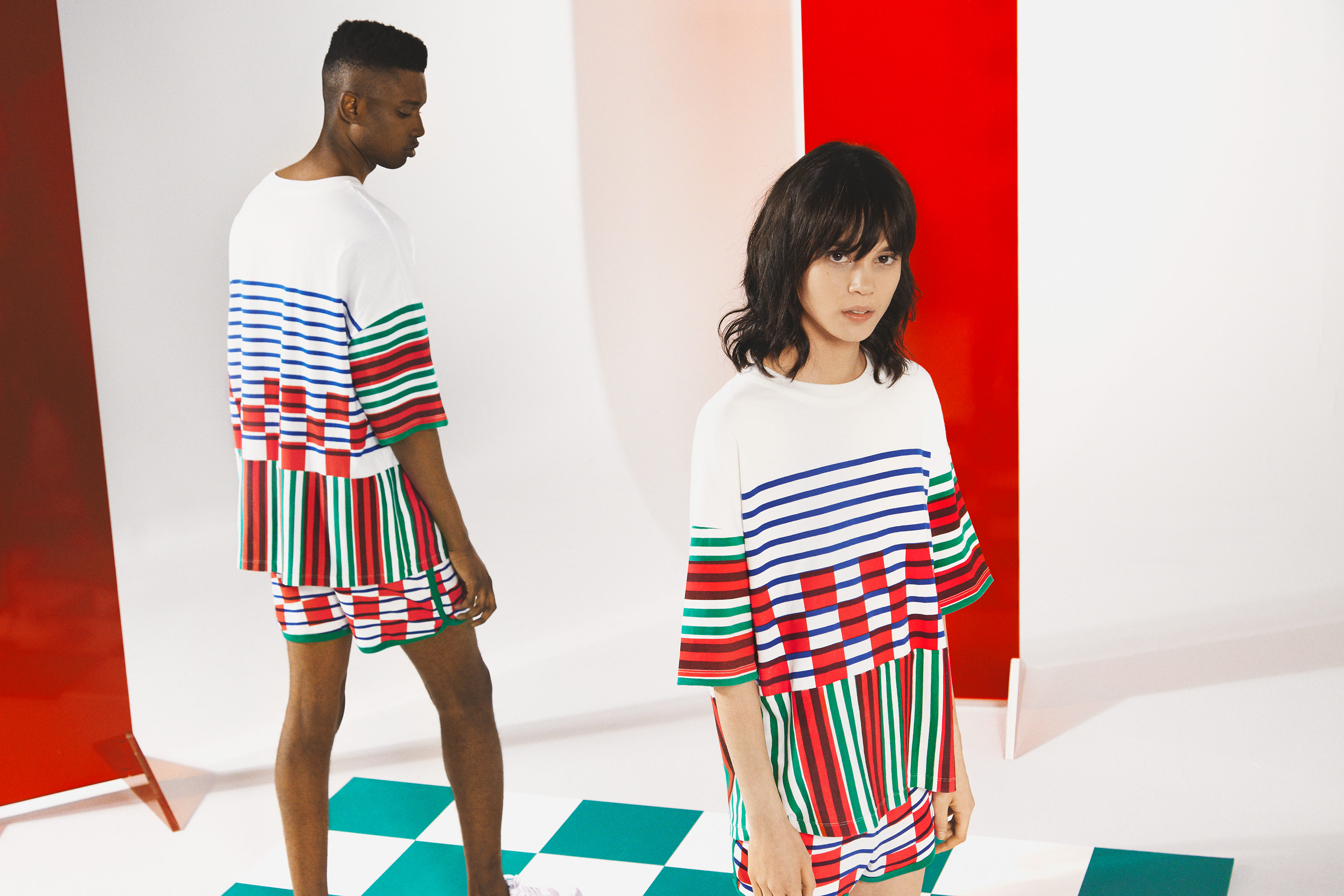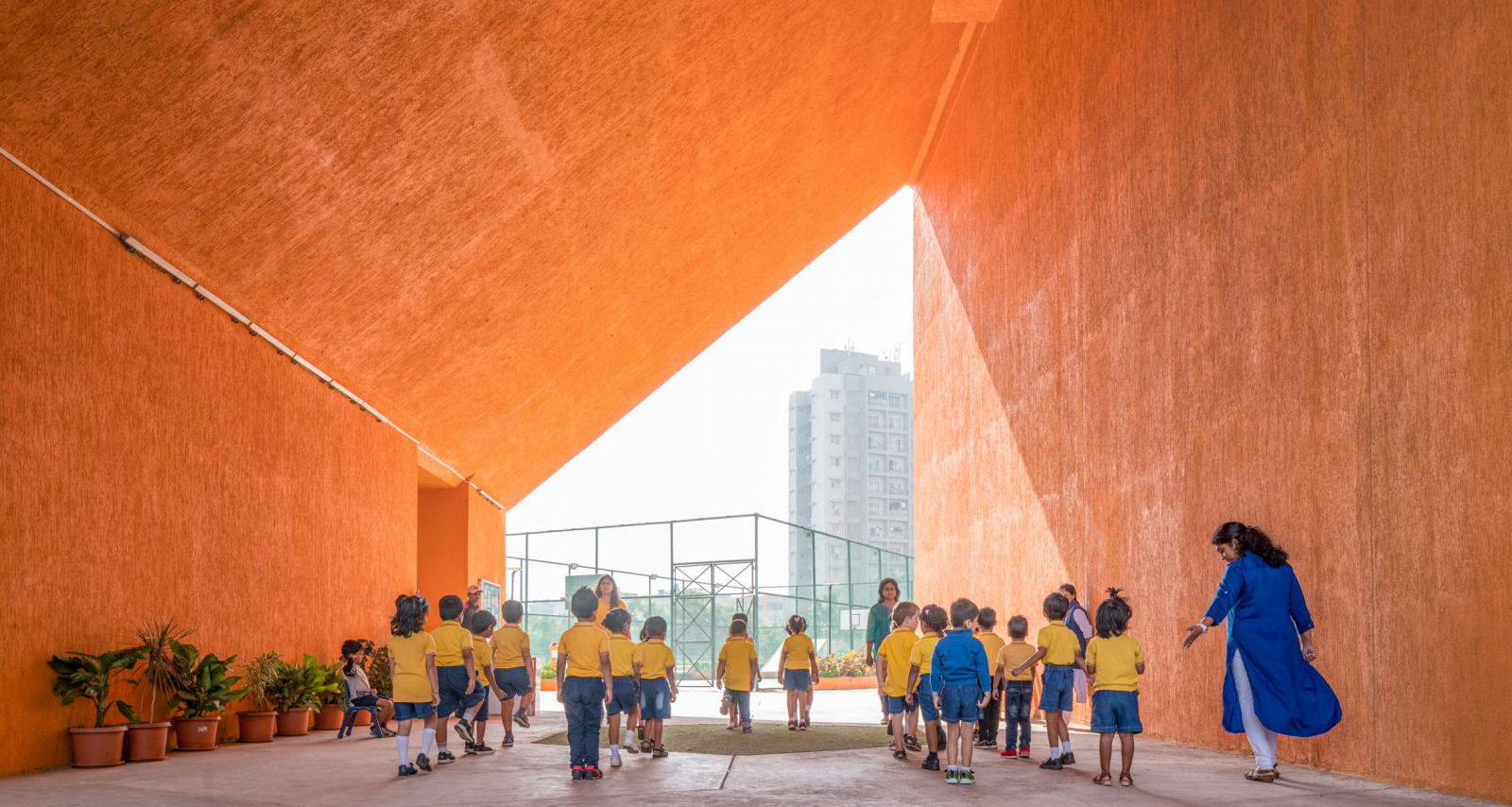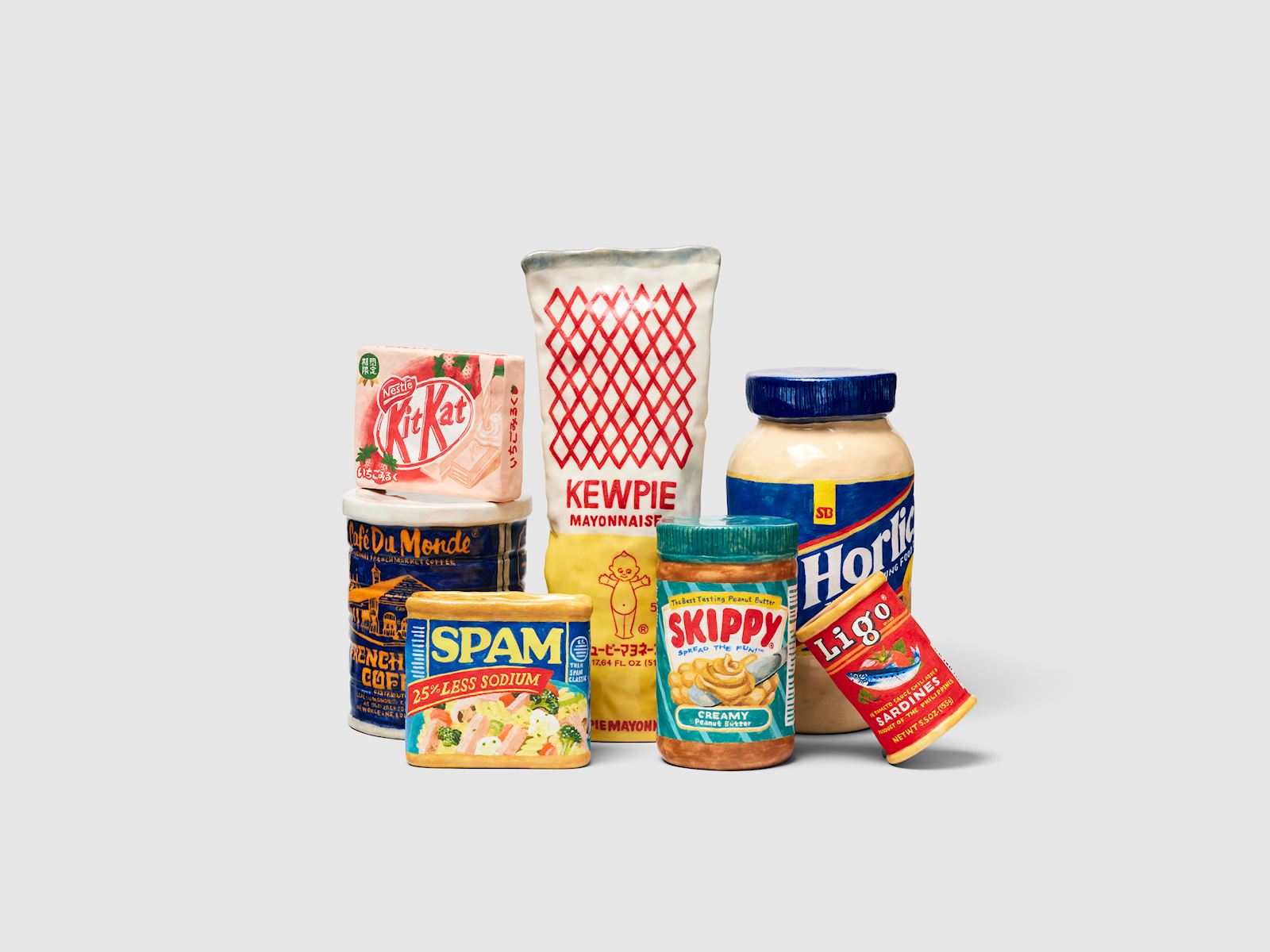
藝術是人的延伸,是心理的投射,投射藝術家的生命經驗,而這些經驗在想像力的牽引之下拆解重組,然後成形。出生成長於美國,身為移民二代的台裔美籍藝術家Stephanie H. Shih將那些潛伏於內心深處關於文化和身份認同的思緒混進陶土,燒製成一件件逼真的陶瓷雕塑。「我們經常想像初代移民與後代之間存在著某種文化隔閡與斷裂,但其實這樣的觀點有些侷限,我相信文化與文化之間有個模糊地帶,而這個地方正是藝術誕生的空間。」Stephanie如此說道。
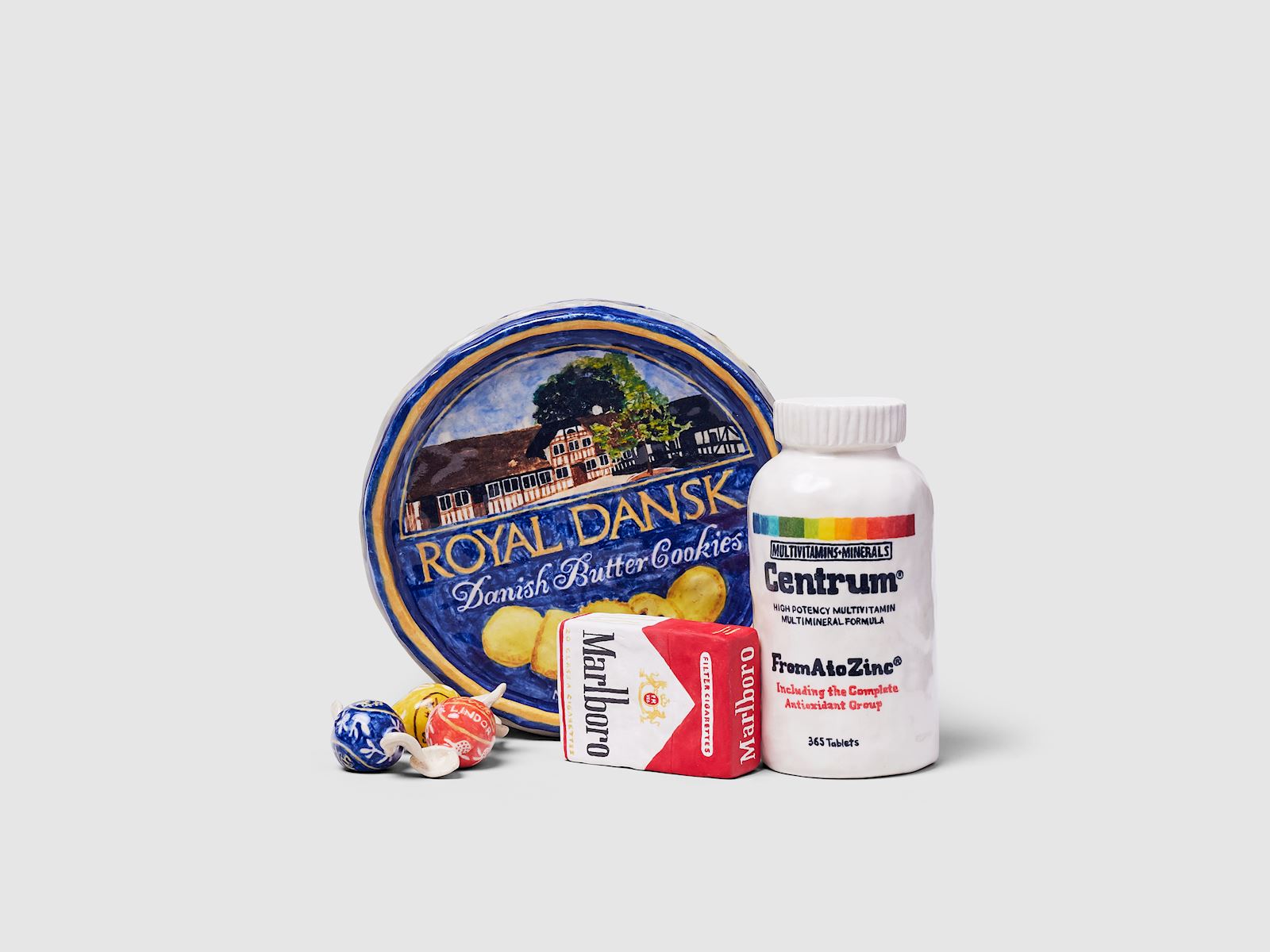
Stephanie的藝術源自於亞裔美國人家庭的日常食飲,觀看她的雕塑作品像是在瀏覽一份購物清單,實際用筆條列的那種,上面寫著:Spam午餐肉、Skippy花生醬、Horlicks麥芽沖泡飲、KitKats威化巧克力餅、Kewpie日本美乃滋、Jasmine Rice泰國茉莉香米、幸運餅乾、生切鮭魚、各式調味瓶罐…即便多數的作品原型是大量工業生產的商品,觀者依舊能在手繪釉料與陶土捏塑的痕跡之中感受到有機,而這些乘載著各自文化的物件在Stephanie的重新詮釋下,串起故鄉與新家鄉的情感連結。
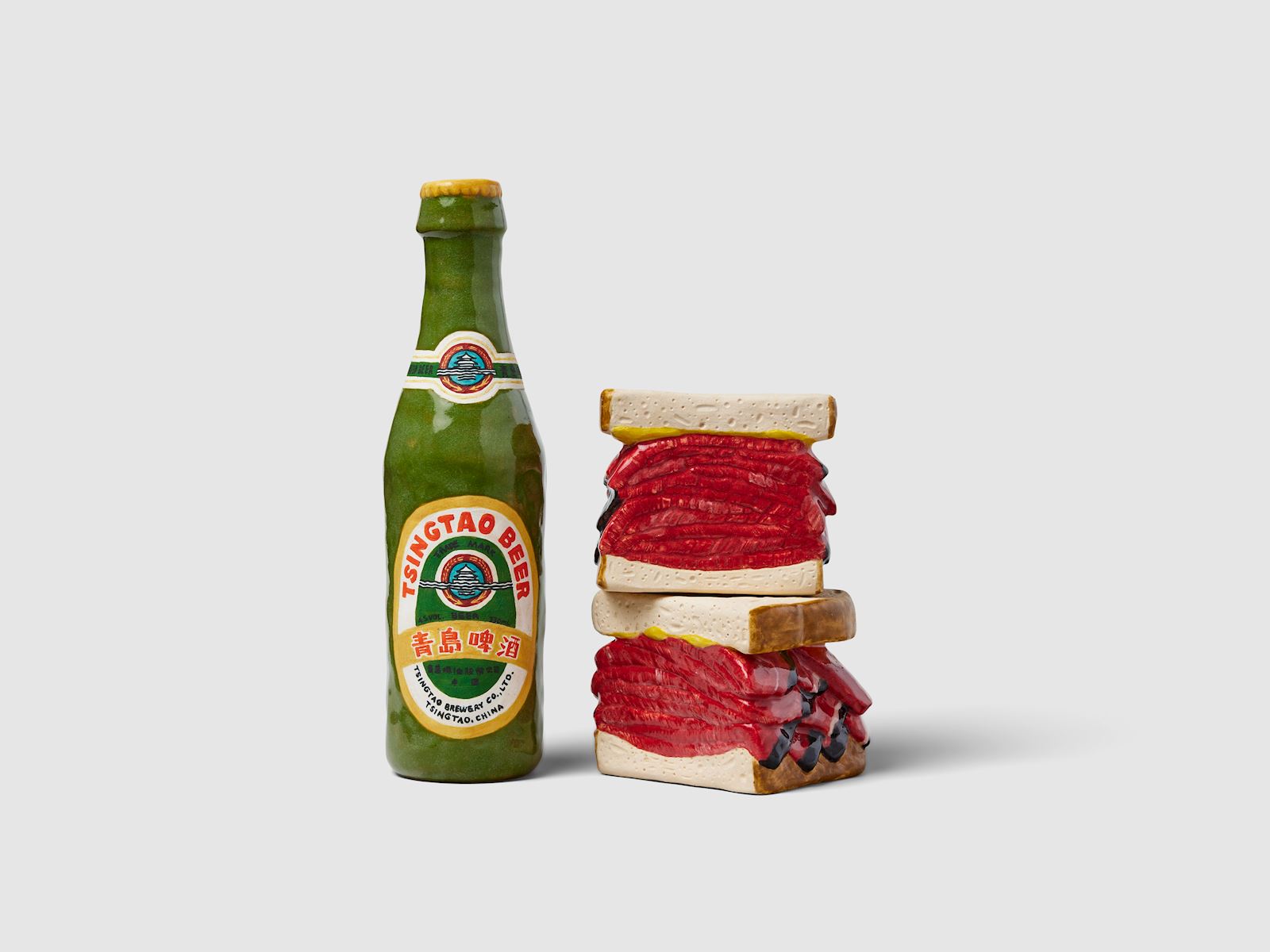
拜網路所賜,我們隨時都能在Instagram與Stephanie的作品連結,欣賞這些製作精細、拍攝精美的作品,前後可能花不到幾分鐘就看完了,然而每件作品其實都需要花費藝術家3-6週的時間創作。首先她得以盤繞法(Coiling)建構本體,接著用釉下彩(underglaze)裝飾上色,然後素燒(bisque-firing),最後再上一次釉料和燒製才算大功告成。如今,Stephanie逐漸將創作的焦點拓展至食品之外的生活用品,包括書籍、錄影帶及其他大眾流行文化物件,持續探索文化的輪廓,真誠地對待藝術。
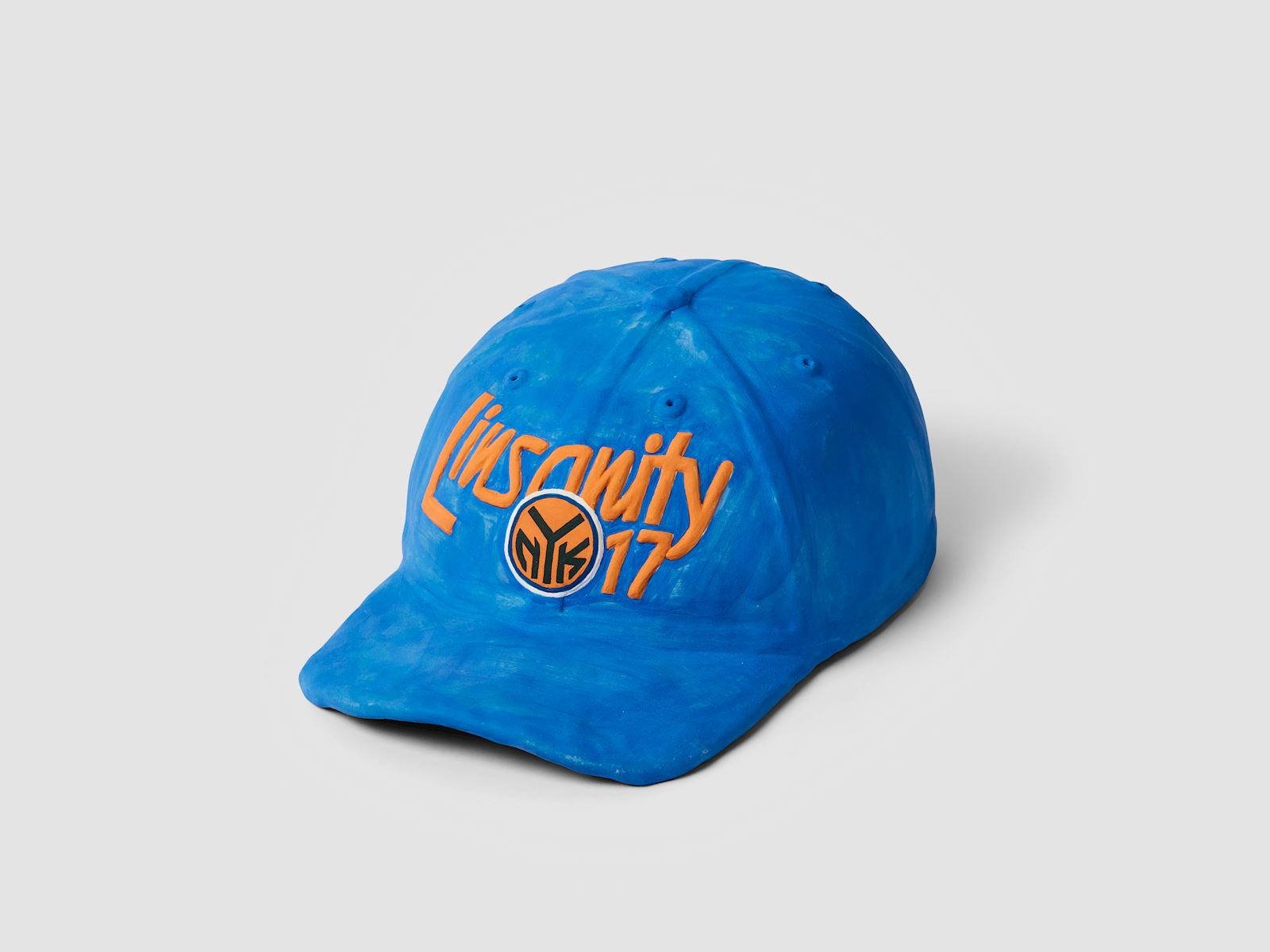
PPAPER FASHION
╳
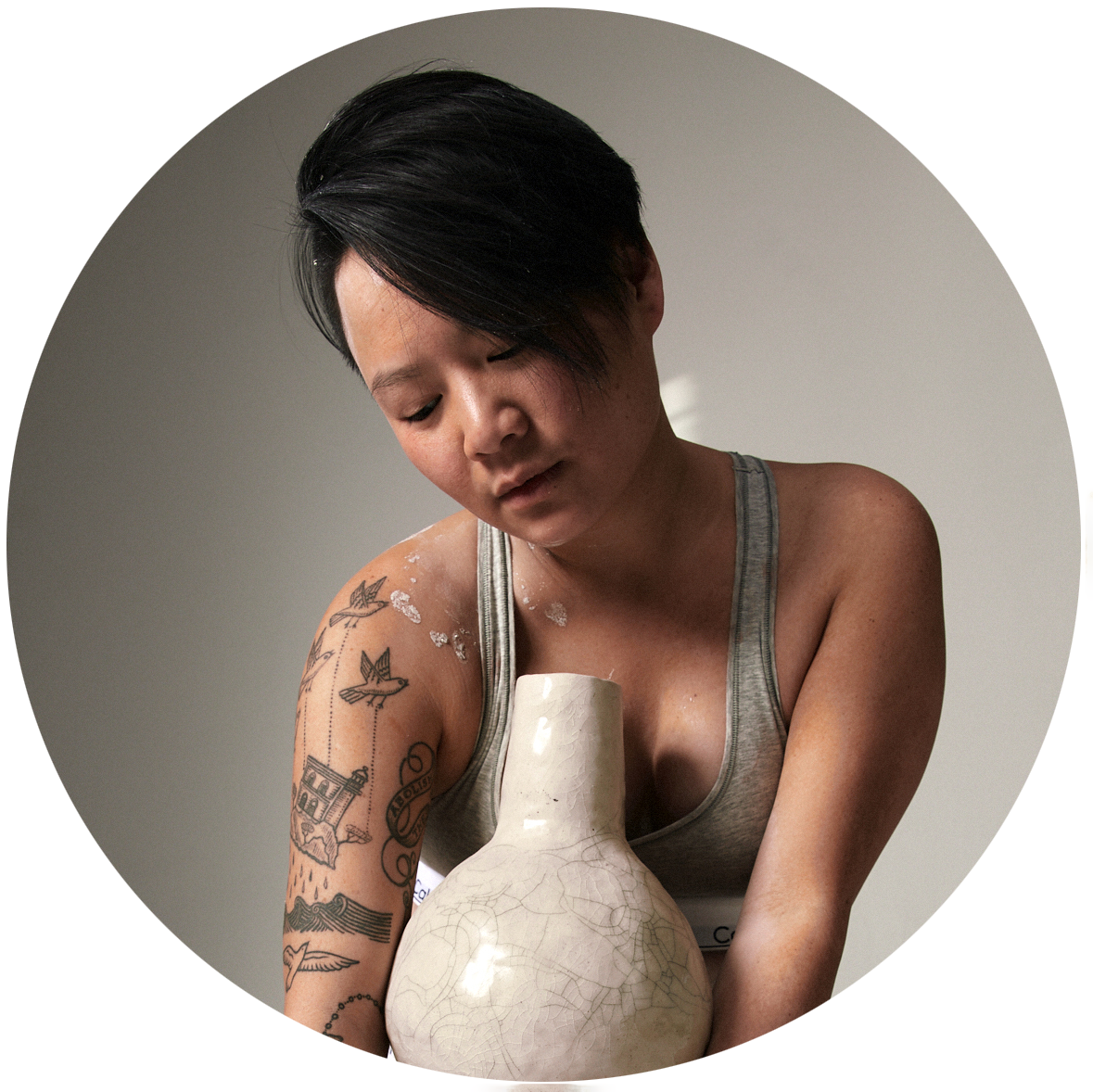
Stephanie H. Shih
台裔美籍藝術家
你小時候是一個什麼樣的人?你來自一個什麼樣的家庭?
我的父母來自台灣,他們在台灣完成大學學業之後便決定移民美國繼續研究所的學習。有鑒於此,我想我爸媽應該很訝異他們的女兒只想創作藝術和跟男生調情。
身為美國亞裔第二代,你是如何探索與找尋自己的身份與文化認同?
我相信許多移民二代(second-generation kids)都會渴望與父母親的原生文化產生連結,不過比起比尋求某種懷舊(nostelgia)的情懷,更重要的是要去擁抱自己身為亞裔美國人的經歷(experience),自己的與父母的文化自然會在生命中交匯。
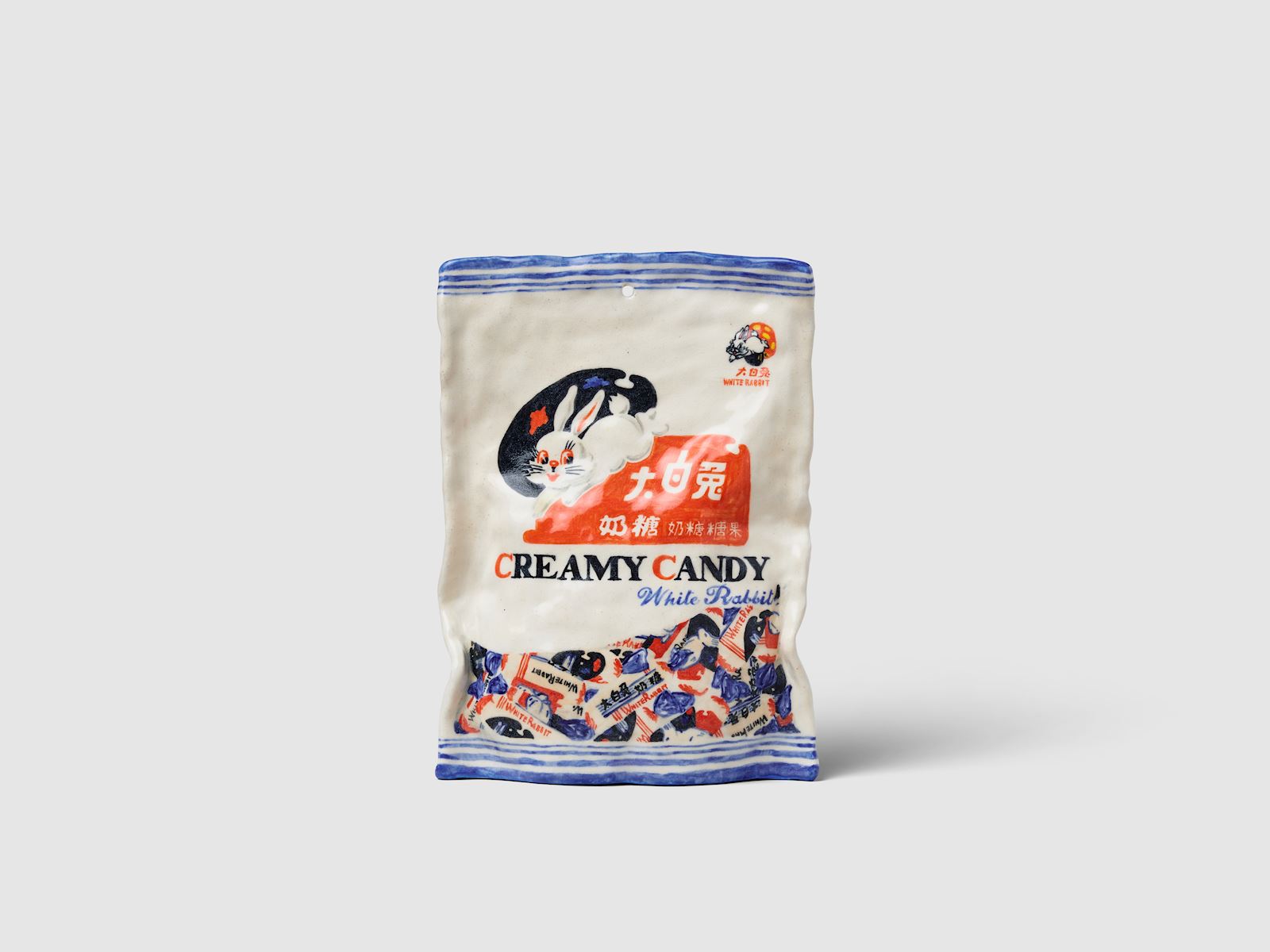
你是從什麼時候開始決定從事藝術創作的?為什麼?
我的媽媽是一名教授,爸爸則是律師。身為父母,他們希望我去找一份相對穩定的工作,倒不是因為不喜歡或是反對藝術,而是擔心這個職業無法保證穩定的生活,所以有很長的一段時間,創作只是閒暇之餘的興趣和活動,直到後來很幸運地在Instagram上獲得迴響,陸續有媒體的接洽與畫廊的展覽邀約,於是順勢轉為全職的藝術家,目前已經工作了四年多。
對你而言,將日常物件製作成陶瓷雕塑(Ceramic sculptures)意味著什麼?
這樣的創作形式讓我的作品很容易與人產生連結與共鳴。
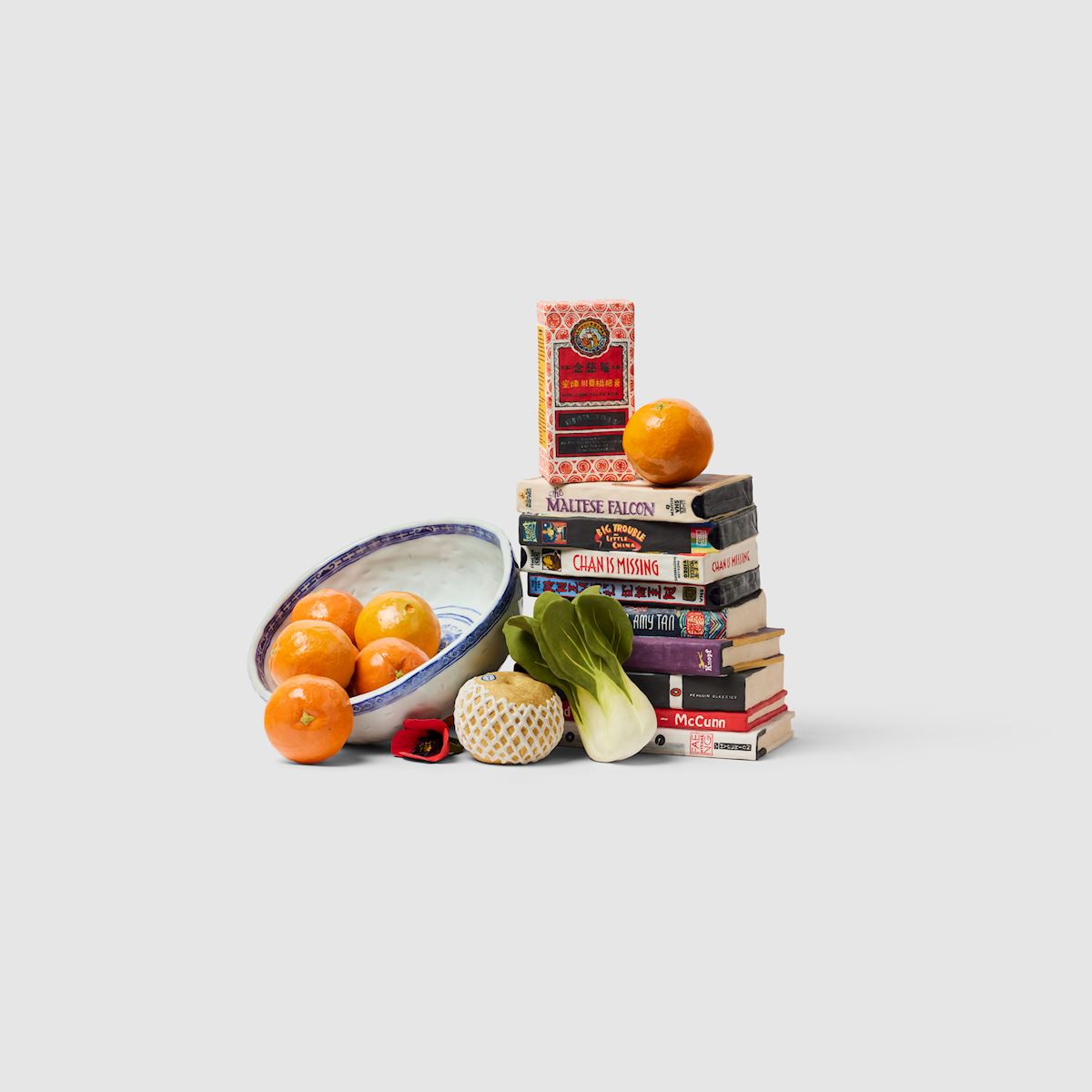
真(Authenticity)與失真(Distortion)對你的創作有什麼意義?
人們經常使用「真實性」這個詞來衡量藝術作品的質量(quality),然而面對藝術與文化的流動性(Fluidity)我們該如何界定什麼是真實的,哪些又是不真實的?我個人認為真實與失真的討論在當代的脈絡下沒有太大的意義,因為藝術和文化無時無刻都在變化,這也是它們如此吸引人的原因。
你有考慮過使用現成物(Readymades)傳達你的創作理念嗎?堅持手作及手繪上色背後的動力是什麼?
對我而言,藝術中的工藝(Craft)層面是最重要的,再來才是作品所欲傳遞的想法。我的作品並沒有所謂的特殊意涵,只不過在創作的過程中,我也藉此思考了關於移民與文化的議題,而作品的意義則會體現在藝術之中。
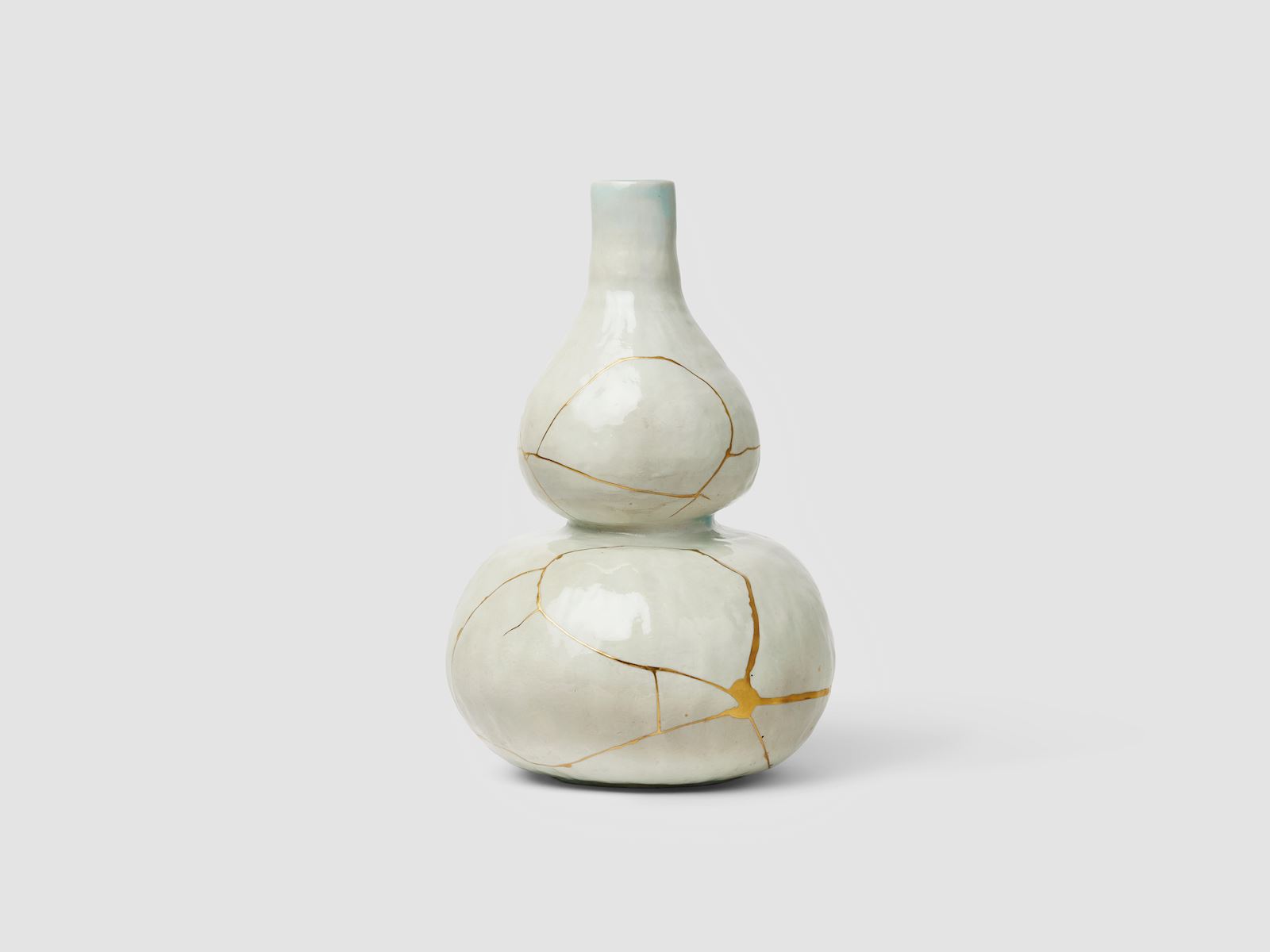
你的個人網站寫著「行動主義(Activism)是你的創作核心」,你的作品是如何體現這樣的精神?
在更認真地投入藝術創作之前,我本身就有在參與各個不同的倡議行動,透過藝術為我關心的議題募集資金,這些行動就是行動主義精神的展現。
你自己平常會下廚料理嗎?最喜歡的食物或料理是?
我喜歡燉煮類的食物和牛排,但是我的療癒美食(Comfort food)清一色都是中式料理,只不過我現在居住和生活在紐約的義大利裔街區(Italian neighborhood),環境多少會影響一個人購買的日常雜貨和食物。
新的一年,有什麼創作計畫可以與我們讀者分享的嗎?
今年我有兩場個展展出,最近的一場會在今年2月的舊金山藝廊「Berggruen Gallery」舉行。■
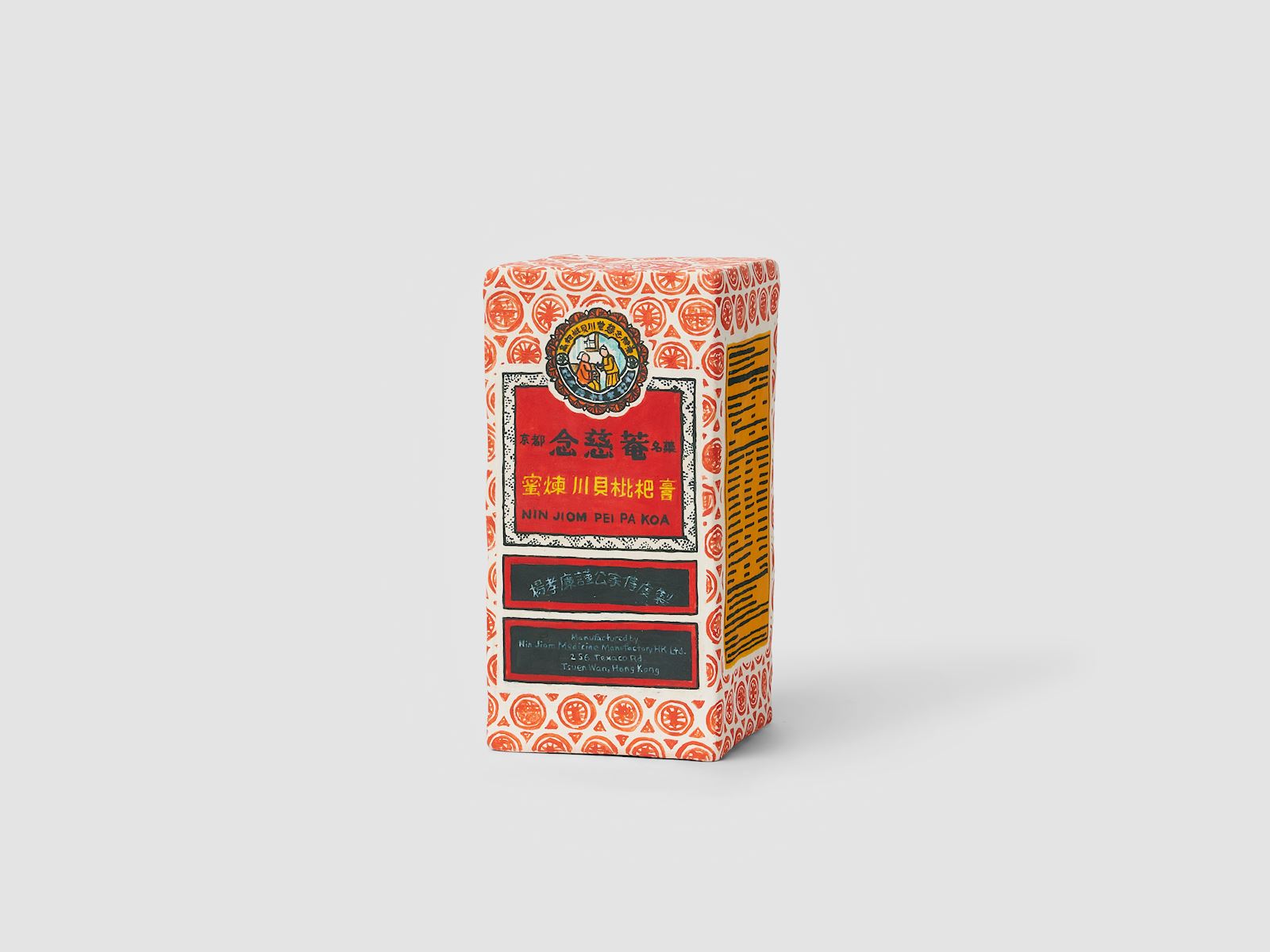
PPAPER FASHION
╳

Stephanie H. Shih
What kind of person were you as a child? What type of family did you come from?
My parents went to NTU and emigrated to the States for grad school. They were surprised by what it was like to raise an American daughter who wanted to make art and flirt with boys.
As an Asian American, how do you explore your personal and cultural identity?
I think many second-generation kids try to connect to their parents' culture by trying to adopt it as their own. However, it's important to me to accept that being Asian American is its own experience, and that's OK. The way the two cultures intersect is much more interesting than chasing false nostalgia.
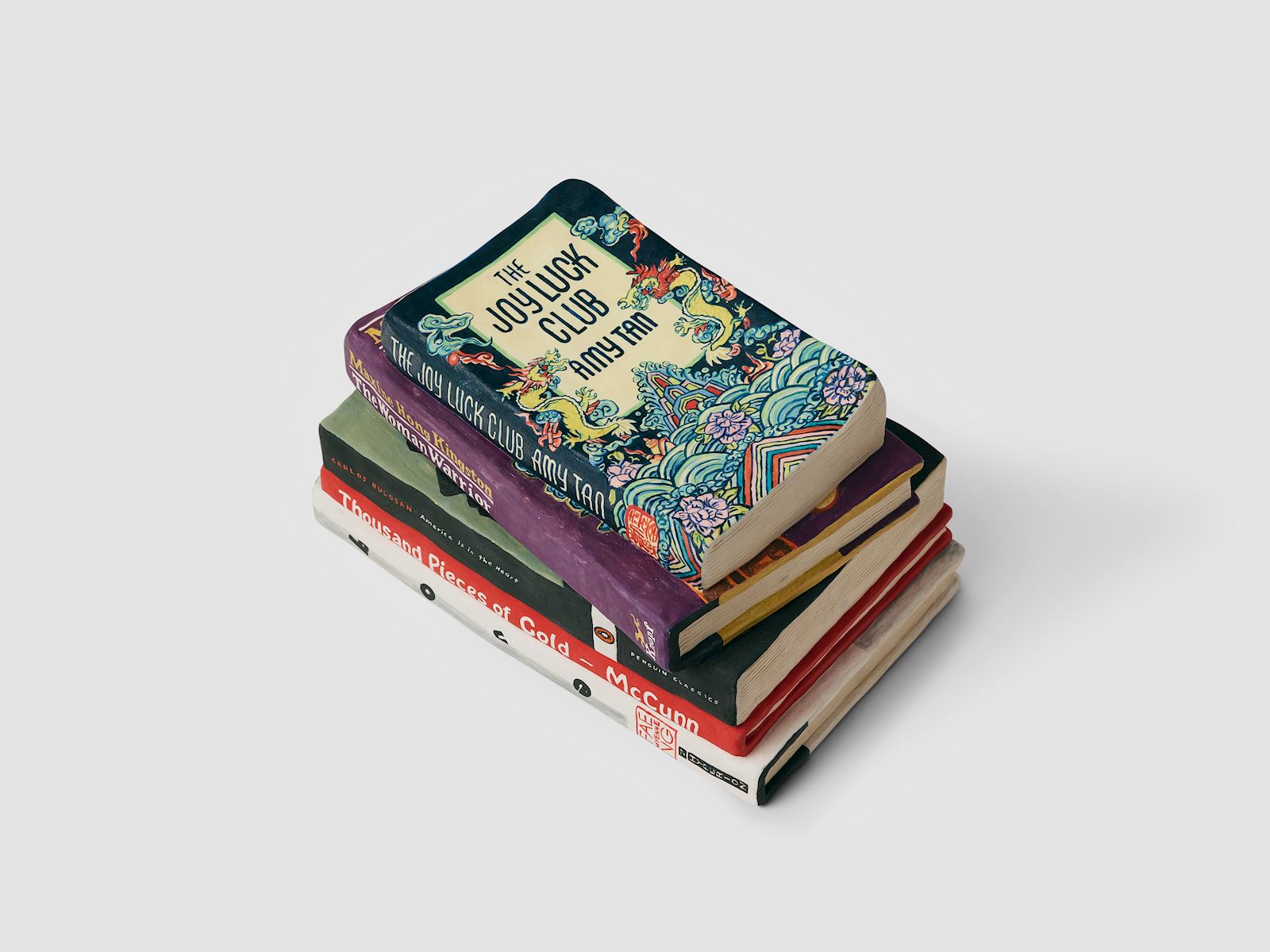
When did you decide to make art? Why?
My mother is a professor, and my father is an attorney, and they wanted me to have a more conventional career—not because they are against art but because they were worried it couldn't provide a sustainable living. So I never pursued art seriously; I just made it in my free time. I got very lucky to get such a positive response on Instagram, which eventually resulted in press and gallery exhibitions. I've been working as a full-time artist now for four years.
What does it mean for you to make everyday objects into Ceramic sculptures?
I like that my work is easily accessible to many people.
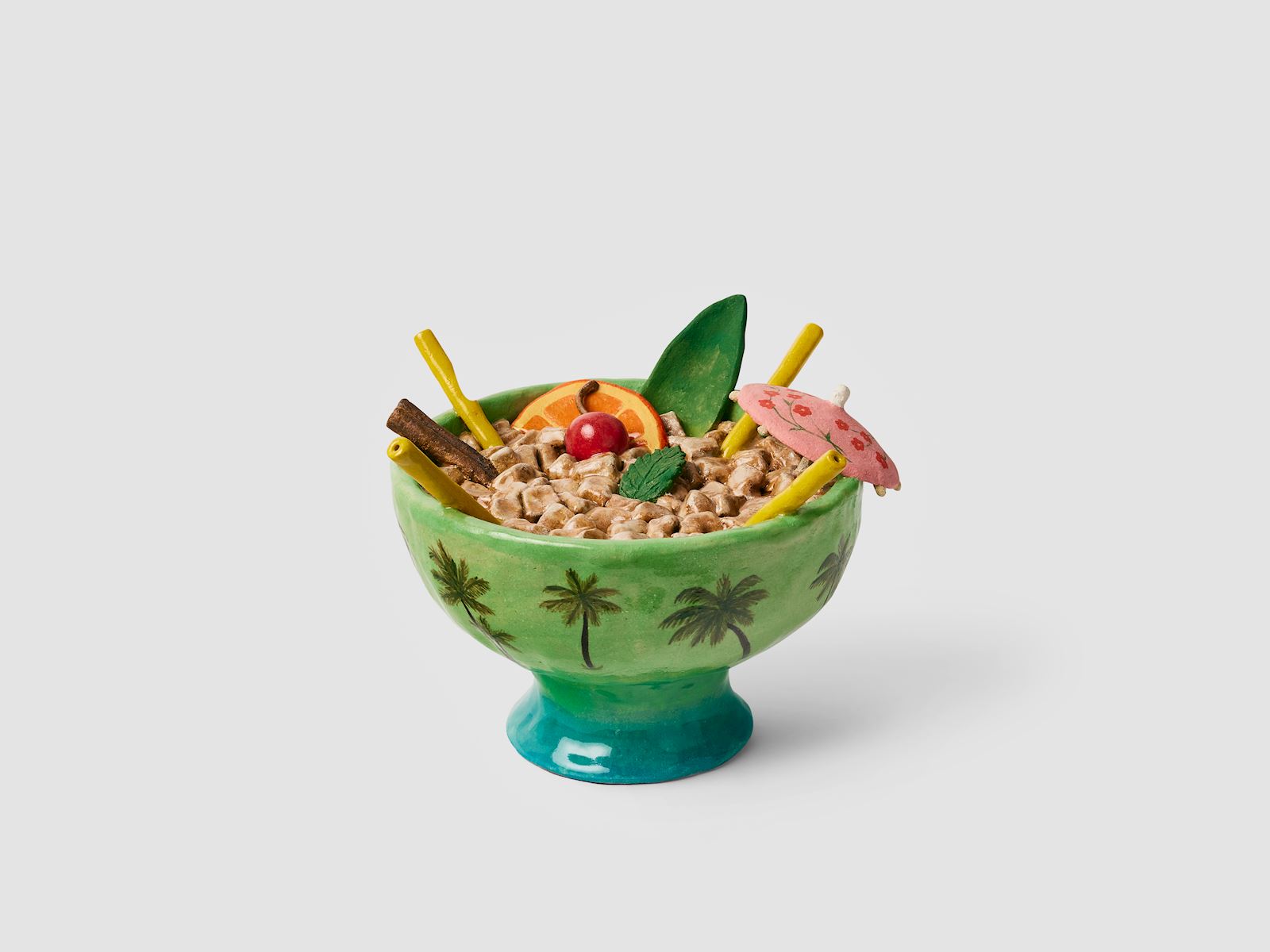
What do "Authenticity" and "Distortion" mean to your work?
People often use the word "authentic" to measure quality, but I don't think that's particularly helpful. How can we say what is or isn't authentic when it comes to something as fluid as culture? Culture is always changing, and that's what makes it so engaging.
Have you considered using "Readymades" to communicate your ideas? What is the driving force behind hand-made and hand-painted coloring?
For me, the craft came first, and the message came second. I didn't set out to convey a specific message, but as I made the work, it helped me think through issues of migration and culture. The meaning followed the art.
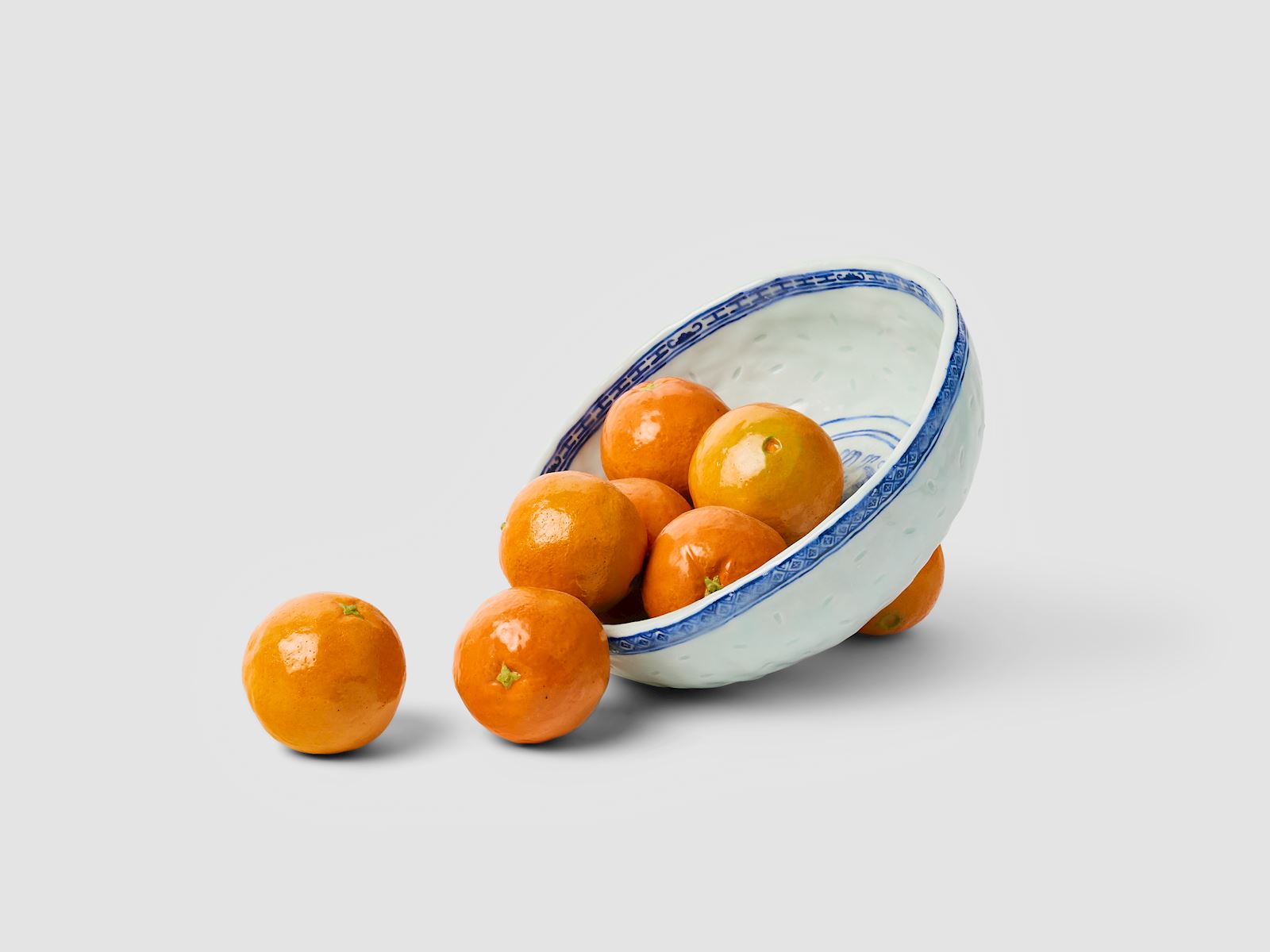
Your website states, "Activism is central to your practice." How does your work embody such spirit?
I was already involved in different activist movements before I began making art more seriously, so it made sense that as my platform grew, I used my art to raise money for causes I cared about. My social politics are inherent to the art.
Do you cook? What is your favorite food or cuisine?
I live in an old Italian neighborhood, and it influences the groceries I buy and the food I make. I also love to cook stews and steak. But my comfort foods are all Chinese.
Do you have any plans for this year?
I have two solo shows in 2023, the first of which will be in February at Berggruen Gallery in San Francisco. ■
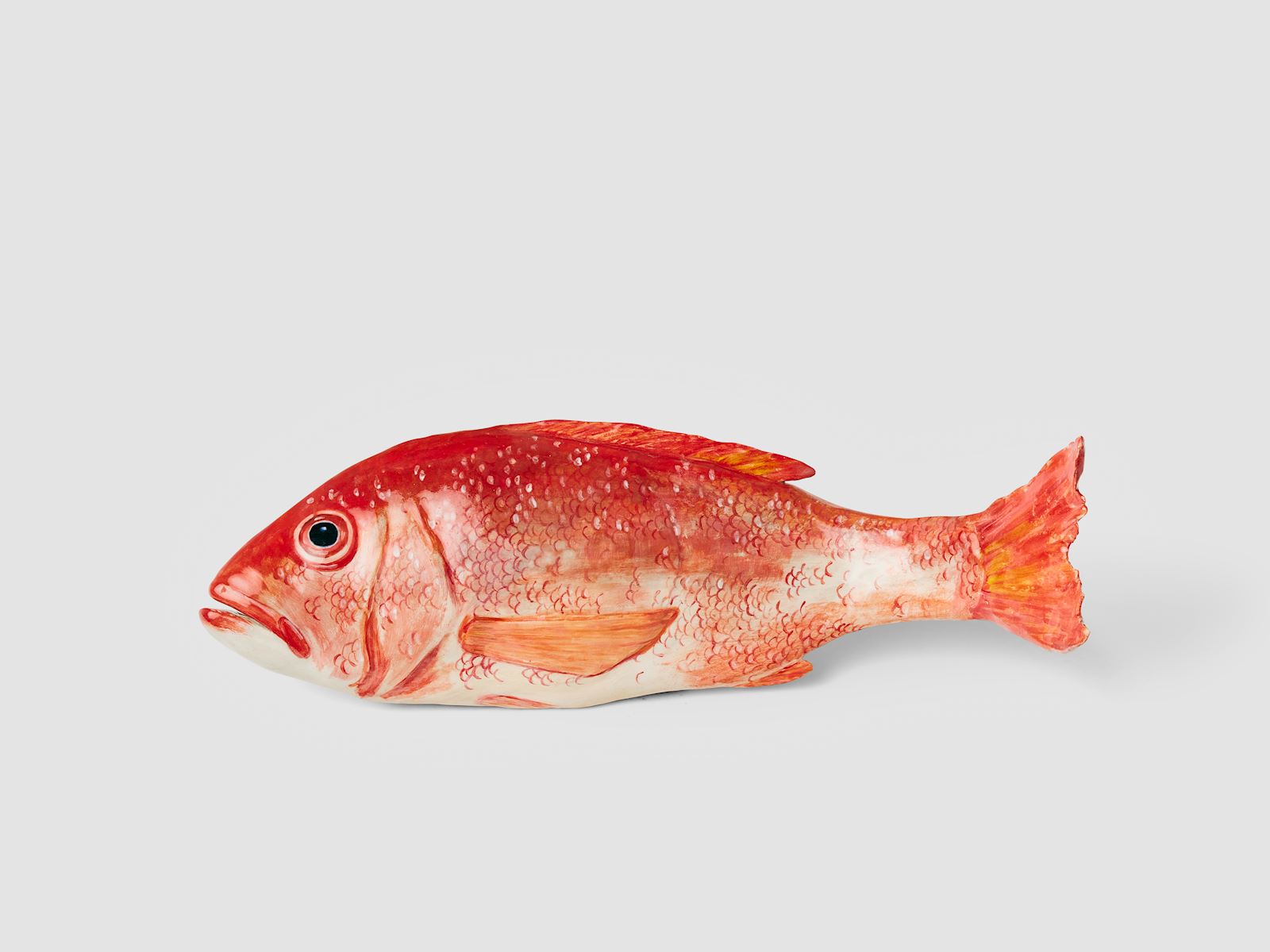
Image courtesy of Stephanie H. Shih
關於作者
Ian Feng。PPAPER 編輯。
因為攝影而開始書寫的文字工作者,難以抗拒酸質明亮的淺焙咖啡,每晚準時收聽酷派爵士,沉醉在 Roger Federer 單反的優雅風骨。
